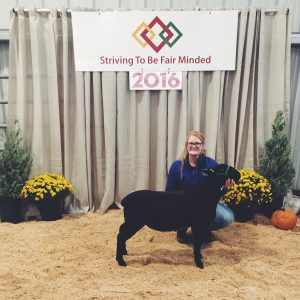What do you want to be when you grow up? A question that is asked of children from the times they are in grade 4 till the day they finally have a career. When talking about 19th century British North America, the beginning of public school started in the ladder half of the century. The type of public schooling that occurred in this time in history was to prepare children to eventually work in the factories. There was no expression of freedom, you learn what you needed to know for a job you were expected to pursue. One comment that was made by our professor was that “how has schooling changed… or has it changed at all.” This made me really think about the ways that schools are ran. In my high school if you wanted to be something different than the “norm” you had to put matters into your own hands and take video conferencing courses and even online courses. If you did not want to put in the extra effort, students would take there English 12, and one senior science. Which for many people is okay, but for example me that was not okay. I don’t like to be normal, honestly I like to be the complete opposite. I want to push the boundaries of that I can be and the careers that I am able to accomplish.
Author: Hannah (Page 1 of 2)
This is my theory on how lectures, seminars and weekly readings all relate to each other.
During our last class lecture we did a confederation debate. Our group was the Maritimes against confederation, it was a very interesting view on confederation. I personally had never looked into confederation from the views of the maritimes. We discovered that one of the main reasons for the maritimes to not encourage confederation was they did not see that they would fairly represented in the house of commons. Another issue was regarding concern about trade with the rest of Canada and England, the people of the Maritimes believed that the trade taxes would go up for their exports. One of the final concerns was about the trans-Canadian railway, in the Maritimes the railways have only even ran North to South. The idea of an East to West railway was new and different. These were some of the main points that were made rom our group.
How does one do history… That seems to be a rather open ended question, there are so many different ways that you can do history. There is the often traditional approach which is learning for the test. Which involves reading the textbook and learning the dates of event that occurs. Another approach to doing history is to learn why an event happened, we learn this way by critical thinking and looking at primary sources and finding out what the context for the event may have been. An interesting part about the way Tracy Penny Light teaches history is during lectures she will give us the outline as to what took place at any given historic event, not many details. We then have to read about the event and make our own interoperation of the event. We have to be able to synthesize information and perform critical thinking versus reading and memorizing context. Both ways of teaching have a place but the way TPL teaches, she teaches us a trait that can be used in all courses no matter the faculty.
My final paper was on the “Advantages and Disadvantages of Aboriginal and European Marriages in Pre Confederation Canada.” My final PDF has been posted below.
This weeks reading were discussing the use of pistol duels in Upper Canada. The events of duels were very common in Upper Canada during the early to mid 1800’s. The main reason for the duels to occur was generally to show the honour of a man regarding, class, religion, politics or another man degrading a related woman honour. Many of the supports for the duels to continue occurring were white, upperclass, anglo-american or British men. While these duels had many supporters there were also many opposers a main portion of the people opposing were women, journalists and family men. When duelling started to become popular, there was a list for rules that were established to ensure that all duels were conveyed in the same order, they were called “Clonmel Code” and it outlines 26 rules that were to be followed during all duels. During the duelling era it became very clear that the different levels of society held themselves to different standards. Many of the people who participated in these duels believed that it was the only way to show there honour. In one of this weeks reading titled “Pistoles at six o’clock” it follows the story of two men who end in a duel due to rumours that had been speed about a certain woman. The duel was purely started because of jealousy, and it ended in one for the men dying from a musket ball to the chest. When the man who survived was on trial the judge, expressed to the jury that all of the mediatory guidelines for the duel had been followed. When the jury returned with a verdict the man was dropped of all charges and was able to go back to his normal life the same day.
This is my statement of process, which was also the tentative outline for my final research paper. One of the comment in my outline was to round out my sources, I also got the feedback on some authors who were experts in the field that I am researching. I then went onto the TRU library and found some very useful sources from Sylvia Van Kirk and Constance Backhouse. I did change my topic from what I was initially considering doing so, I was a little short on time when I was looking for sources.
My name is Hannah Feller, I am 18 years old and am currently enrolled into the Bachelor of Science program at Thompson Rivers University. I attended secondary school at Barriere Secondary School in the small rural town of Barriere B.C. In the next few years I hope to transfer to the University of Saskatchewan in Saskatoon to pursue a career in Agribusiness. My love for agriculture stems from my 9 years in the 4H program. In my years in 4H I have used all of the resources from the program including both provincial and nation trips. Through my years in 4H I have shown both beef cattle and sheep. I have loved growing up in a small town and growing up around my livestock. I hope that once I have my degree to move back to Barriere and live in the community that raised me.

